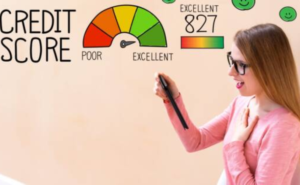Credit Report Codes: What Do They Mean?
It is recommended to do frequent checks on your credit report to know if it contains accurate information and no derogatory marks to decrease your credit score. While reading through your report, you will come across credit report codes and these contractions can make it feel like you’re reading a secret code language.
The abbreviations in your credit report are usually short forms for lender names, acronyms of industries, types of accounts, and status. It is necessary to know the common ones so as to be aware of when to take action to rectify the errors.
What Is a Credit Report and How Can I Acquire Mine?
Lending institutions and creditors give credit bureaus regular updates regarding your account details and transactions. These credit reporting agencies gather all the data and integrate it into one file referred to as the credit report. Financial institutions and lenders use your credit report to work out whether you qualify for new lines of credit or not.
Your credit score – a three-digit figure quantifying your credit report information, may also be used to determine whether you are a good or bad credit risk.
Your credit report can be accessed online for free from any of the three major credit bureaus. Refer to the following abbreviations to better understand the short forms on your credit report. Bear in mind that different credit reporting agencies use disparate codes while some abbreviations appear only on reports provided to lenders.
1st Financial Bank USA (1FBUSA)
This bank issues new lines of credit and offers different types of loans. The ‘1FBUSA’ code will appear on your credit report if you have been issued a loan or product from them.
Closed (C or CLS)
The credit reporting agencies; Experian and TransUnion use “CLS” and “C” respectively to indicate that an account has been closed and is no longer operational.
Collection (C or F)
A ‘collection’ account on your credit report shows that your account has been sent to a third-party collection agency for persistent efforts for the loan to be paid back.
TransUnion adds an ‘F’ to your credit report when debt has been paid off to creditors.
Credit Paid as Agreed (C1)
C1 on your credit report means that a line of credit has been paid as per the agreement.
Credit Line Secured (CLS)
CLS means ‘credit line secured’ when it shows up in the “Purpose Type of Account” section of your credit report from Experian.
Charge-Off (CO)
‘CO’ indicates a charge-off which means an account has been closed after 180 days of the debt being past the due date. This debt will be written off as a loss.
This entry on your credit report will hurt your score so it is recommended to dispute these entries at the earliest.
Defaulted on a Settlement (D)
The appearance of this letter on your credit report means that the requirements of an agreement were not fulfilled and that you may have fallen behind on a payment.
Delinquency (DEL)
This abbreviation specifies an account that has been due past a month or more. The delinquency short form will have numbers next to it which indicate the days past due. This code may also appear as ‘DELINQ’ but less frequently.
Date of Last Activity (DLA)
The date of your most recent activity such as a purchase or payment will appear as “LACT” or “last activity”.
Equal Credit Opportunity Act (ECOA)
It is required by law that companies report shared accounts to credit bureaus especially when the contract has the names of the spouses. In some cases, businesses receive written requests from one of the partners.
ECOA appears as a header and is followed by codes depicting which of the spouses is accountable to repay an amount.
| Code | Description |
|---|---|
| A | A shared accounts’ authorized user |
| C | Contractual joint account |
| I | Account owned by an individual |
| M | A co-signed accounts’ owner. The co-signer will be held responsible if the owner fails to make a payment on time. |
| PShared account in which the individual is not an authorized user (A) nor a joint contractual account owner (C) SA co-signer of the account, and the person who will be made responsible if the owner of the account happens to default on a paymentTAccount terminatedUUnspecifiedXExpired or deceased |
Equifax (EFX, EF)
Short form for one of the three major credit bureaus, Equifax.
Fair Credit Reporting Act (FCRA)
It is a law or regulation stating your consumer rights and the role of credit bureaus and companies which provide your credit information.
Personal Loan Corporation (FP)
This code shows a personal loan company on your credit report.
Installment Loan Charged-Off as a Debt (I9)
I9 appears on your report when an installment loan has been charged off as a debt. The “I” indicates the installment account and the number suggests the means of payment (a charge-off in this case).
Key Derogatory (KD)
This abbreviation demonstrates a major delinquency such as a foreclosure, repossession, collection, or charge-off.
Mortgage Loan (M)
This type of loan is used to buy a house.
Manually Frozen (M)
The letter ‘M’ next to the date shows that the account was frozen manually on a TransUnion credit report.
Medical and Health-Related (M)
The ‘M’ next to the name on a TransUnion report indicates that the business is in the medical and health-related fields.
Mortgage Paid as per Agreement (M1)
This means that the mortgage has been paid as per the agreement in the terms set to qualify for a loan. The ‘M’ indicates a mortgage and the number indicates the means of payment.
Manner of Payment (MOP)
The MOP represents the current payment status on an account. For instance, ‘paid as agreed’ or ‘paid 120 days after the due date’.
No Data (ND)
When there is no data or a lack thereof, it is indicated using ‘ND’ or a hyphen.
Oil Business (O)
The ‘O’ next to the furnisher’s name on a TransUnion report depicts that the company runs an oil business.
Open Account (O)
This indicates an active and running account.
Repossession (R)
This refers to creditors or lenders taking possession of your belongings (vehicle or home) after you have defaulted on a loan payment. TransUnion uses ‘F’ to indicate repossession while Experian uses ‘R’.
Reported (R)
When found next to the date on a TransUnion report, this means that relevant details were reported to the credit bureaus.
Revolving Account, Paid as Agreed (R1)
This code means that an option or revolving account has been paid as agreed.
TransUnion (TUC, TU)
Short form for one of the three major credit bureaus, TransUnion.
Voluntary Surrender (VS or VOLUSURR)
In an Experian report, this refers to voluntarily giving up your possessions and returning them back to the lender when you are unable to repay a debt.
Wells Fargo Dealer Service (WFDS)
This code will show up on your report if you had applied for a loan via Wells Fargo – an auto lender.
Experian (XPN, XP)
Short form for one of the three major credit bureaus, Experian.
Wind-Up
These codes in the form of letters paired with numbers don’t exist on your report without credible reasons. As per the Fair Credit Reporting Act (FCRA), these codes must accurately indicate your current credit situation.
It is important to be familiar with credit report codes as they could help you with disputing errors and can possibly lead to negative items being eliminated from your reports.






